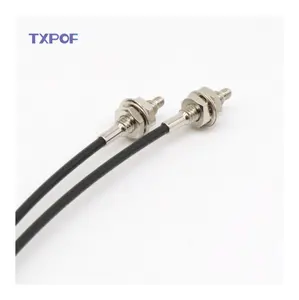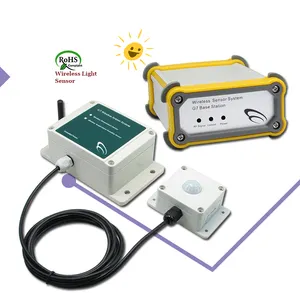Analog Lux Sensor Overview
Analog lux sensors are integral components in a myriad of electrical devices, serving the primary function of detecting light intensity with rapid response times. These sensors convert light (luminous flux) into an electrical signal, offering a means to measure illumination in environments with precision. Their versatility allows for application across various sectors, from household appliances to advanced aerospace systems.
Types and Applications
These sensors come in diverse forms, including photoelectric sensors, photocells, and infrared (IR) variants, each tailored for specific use cases. For instance, photocells are often found in lighting control systems, while IR sensors are pivotal in security and energy-efficient applications. The analog lux sensor's adaptability makes it indispensable in fields such as agriculture for monitoring sunlight exposure, in medicine for creating responsive lighting in devices, and in the burgeoning domain of the Internet of Things (IoT), where they contribute to the automation and smart control of environments.
Features and Materials
Analog lux sensors are characterized by their sensitivity to light and the ability to produce a variable voltage output that directly correlates with light intensity. Materials used in these sensors include silicon photodiodes and cadmium sulfide, chosen for their responsive properties. The construction of these sensors is designed to ensure durability and reliable performance under varying conditions.
Advantages of Analog Lux Sensors
The advantages of utilizing analog lux sensors are manifold. Their analog output can be easily integrated into existing circuits, making them a go-to choice for engineers and designers. Additionally, their simplicity in design translates to cost-effectiveness and ease of use in various applications, from simple light monitoring to complex industrial processes.
Selection Considerations
When selecting an analog lux sensor, it is crucial to consider factors such as sensitivity range, size, and the specific application it is intended for. For DIY enthusiasts, kits are available to tailor these sensors to bespoke projects. For industrial buyers, a wide array of sensors with different specifications is available to suit large-scale applications.
Procuring Analog Lux Sensors on Alibaba.com
Alibaba.com hosts a comprehensive collection of analog lux sensors to cater to the diverse needs of industries. Whether the requirement is for simple light detection or for integration into complex systems, the platform offers a conduit to a variety of sensors without endorsing any particular brand or making qualitative claims. Buyers can explore the offerings to find components that align with their project requirements.











































 浙公网安备 33010002000092号
浙公网安备 33010002000092号 浙B2-20120091-4
浙B2-20120091-4